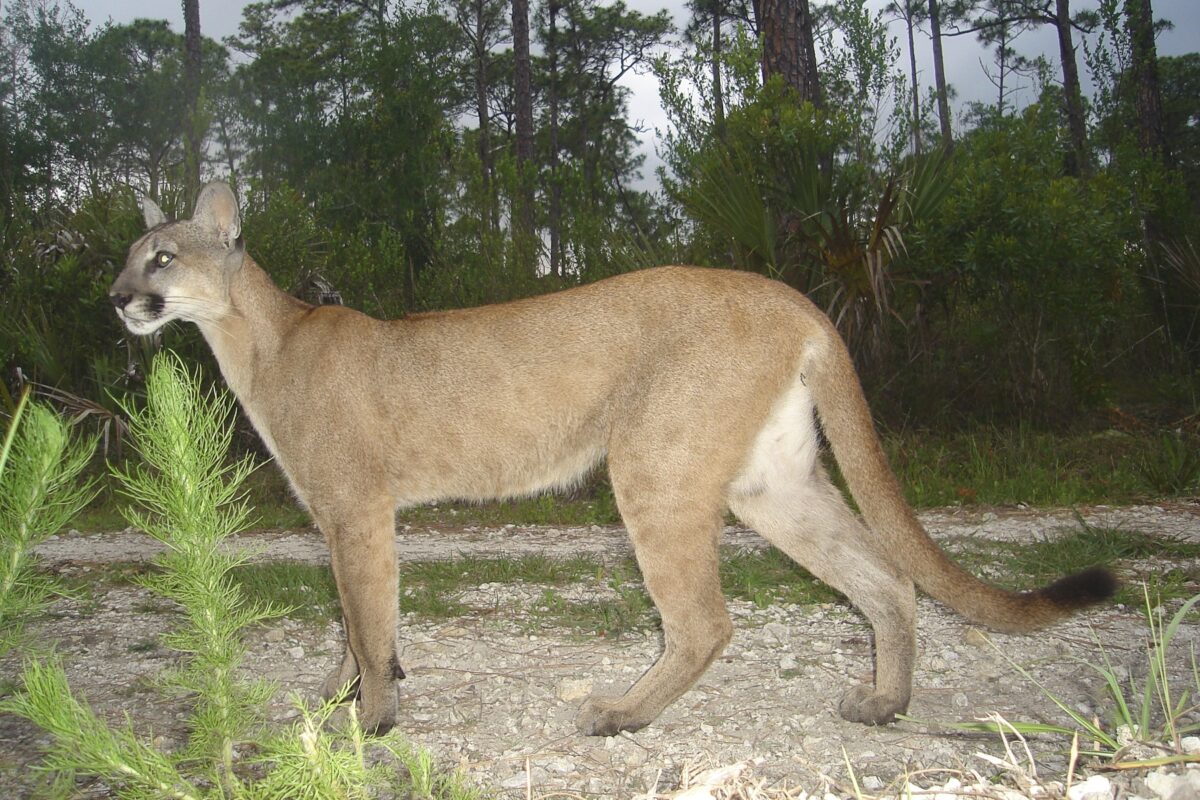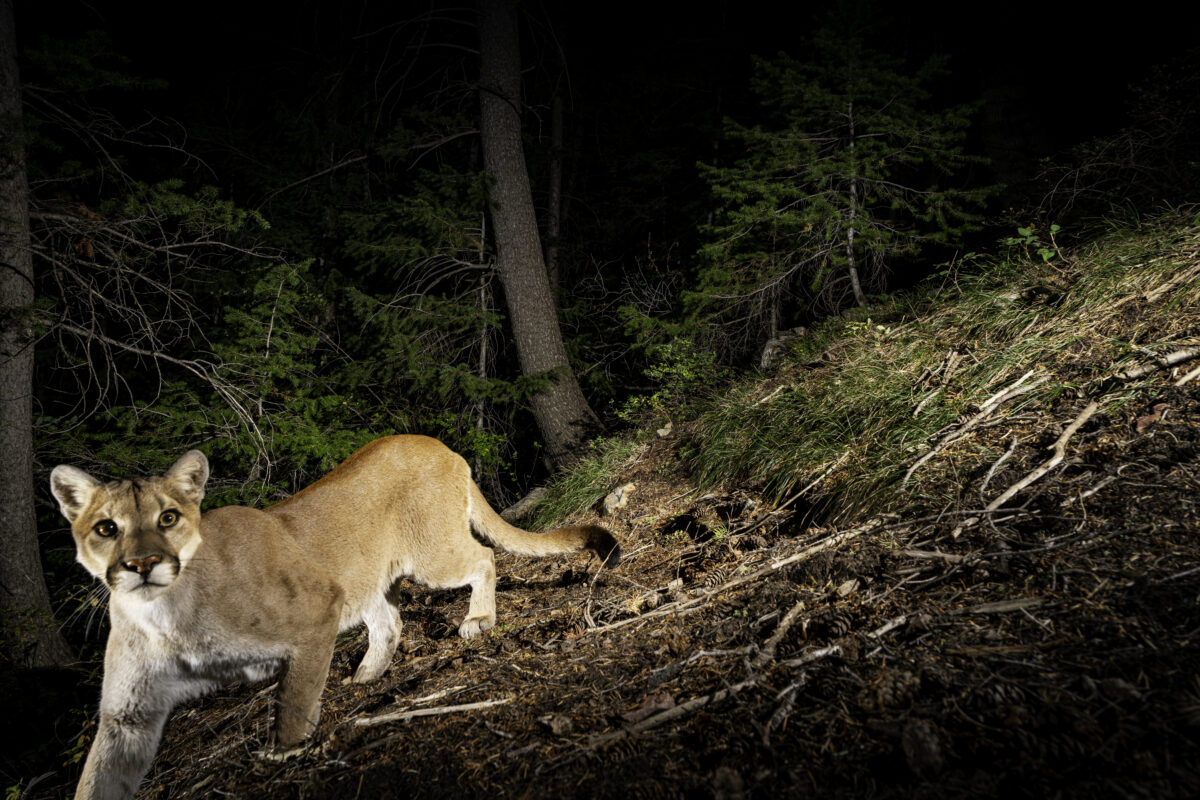This essay was published in the Spokane Spokesman-Review on November 5, 2021. It is reprinted here with permission of the paper.
A 21st-century approach to wildlife
By Josh Rosenau and Debra Chase
The killing of what may be a record-breaking cougar (“Massive cougar killed by hunter,” Oct 17), and debate over extending Washington’s spring bear hunt both show how outdated the state’s approach to wildlife is. Washingtonians love the outdoors and our wildlife. At times, we are torn between that love and outdated beliefs about agriculture and wildlife, a false belief in blood-for-blood retribution against any animal that even creates a fear of harm.
Consider the 197-pound male cougar killed as it napped on Sept. 9 by a hunter in Eastern Washington. The hunter celebrated the kill, hoping it will prove to be a record, beating the Boone and Crockett Club’s last record cougar, killed in 1979. The big tom only lived about nine years, and had it survived, could have passed on its remarkable genes to more generations of record-setting cougars.
Sixty years ago, Washington stopped paying bounties for the killing of carnivores. Those bounty programs had little effect on their stated goal of protecting livestock, but the devastation they caused our wilderness is still healing. Twenty-five years ago, voters ended hound hunts and bear baiting, deeming those ineffective and cruel ways to handle our wild carnivores. The state is slowly but surely shifting toward coexistence rather than conflict with wildlife.
Last month, this tension came up again, as the Washington Department of Fish and Wildlife debated allowing a spring bear hunt. Only eight states allow black bears to be hunted as they emerge from their long winter rest, and as bears that gave birth in the winter emerge to feed their cubs. Surveys of Washingtonians find that we overwhelmingly oppose such hunts as cruel and unnecessary, leaving orphaned cubs and damaging our wilderness for no benefit. Research shows that hunters are unable to reliably distinguish male and female bears, let alone tell nursing females from those that are not caring for cubs. Nonetheless, advocates and the department insist that orphaned cubs are uncommon and justify the hunt as an aid to tree farms, whose stock can be damaged by hungry bears.
Few of us will ever see a 200-pound cougar resting under a tree. The elusive cats avoid humans and can hide from all but the most dedicated pursuit. Had the hunter pulled out a camera instead of a gun, or been part of the growing contingent placing motion-activated cameras in our backwoods, others might have shared the experience, and benefited from his skill as a tracker and woodsman. A large male cougar roaming the forest, relaxing under a tree, living its short life and contributing to the biodiversity of that forest is a rare and beautiful thing. A picture for all to enjoy. Alive, it would continue culling the least-fit deer from wild herds, recycling nutrients from its prey back into forests, and making our forests and wildlife healthier. Dead, it contributes neither to nature nor society.
Approaching nature as an enemy to be conquered is outdated. Cougars have existed alongside bears and salmon in Pacific Northwest forests for as long as humans have been here, and humans and wildlife can coexist peacefully today, too. We can keep wildlife away from our livestock and tree plantations without a return to the slaughter that robbed eastern states of their native carnivores, and that has devastated our wild salmon and the orcas that rely on them. Washingtonians who love the outdoors, and who want to share our wild lands and wildlife with our children and future generations all want clean, fresh rivers teeming with fish, blue skies with colorful birds singing song, and majestic carnivores like the mountain lion, bear and wolf freely roaming our forests and mountains.
For 50 years, Washington has moved toward this new approach, but as the ongoing debate in the Fish and Wildlife Commission shows, that work is incomplete. The commission must decide whether a spring bear hunt still reflects how Washingtonians relate to nature. We must keep asking whether killing our largest carnivores for trophies fits today’s Washington, and whether a local sheriff should be able to declare war on cougars, as is happening now in Klickitat County. Or will Washington pioneer a new approach, one in which our urban and rural developments thrive alongside and coexist with the majesty of orcas, bears, wolves and America’s lion.
Josh Rosenau is a biologist and Conservation Advocate with the Mountain Lion Foundation. He lives with his wife and two children in Lake Forest Park, Washington. Debra Chase is the CEO of the Mountain Lion Foundation.



 Facebook
Facebook Twitter
Twitter Send Email
Send Email


